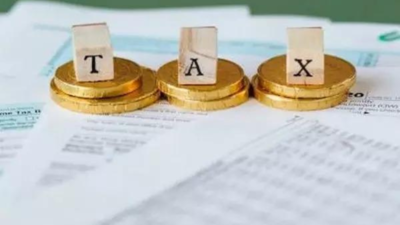India’s net direct tax collections declined 1.34% year-on-year to Rs 5.63 lakh crore as of July 10, dragged down by a sharp surge in refunds, according to government data released on Friday. Gross tax collections — before adjusting for refunds — rose 3.17% to Rs 6.65 lakh crore during the period, reflecting an underlying improvement in earnings. But net refunds issued so far this fiscal jumped 38% to Rs 1.02 lakh crore, weighing on the final mop-up.Corporate tax net collections fell 3.67% to Rs 2 lakh crore from Rs 2.07 lakh crore in the same period last year, while non-corporate taxes, including income tax from individuals and HUFs, remained flat at Rs 3.45 lakh crore, PTI reported. Securities transaction tax (STT) collections stood at Rs 17,874 crore. Gross corporate tax receipts grew 9.42% to around Rs 2.90 lakh crore, while gross non-corporate tax mop-up declined 1.28% to Rs 3.57 lakh crore. The Centre has so far collected 22.34% of its budgeted direct tax target of Rs 25.20 lakh crore for FY26, which implies a 12.7% growth over the previous fiscal. The STT target for the year is Rs 78,000 crore. Tax experts attributed the subdued net growth to structural reforms aimed at improving taxpayer services and supporting economic activity. Gouri Puri, partner at Shardul Amarchand Mangaldas & Co, said the drop reflects the government’s focus on streamlining refund disbursals. “This reflects the government’s focus on improving taxpayer services, as timely and efficient refund processing is a critical enabler of ease of doing business,” Puri said, quoted PTI. Samir Kanabar, tax partner at EY India, said the fall in net collections was mainly due to higher refunds but was also linked to ongoing policy reforms. “On the personal tax front, the revised slab structure continues to offer relief to a large base of taxpayers, resulting in reduced tax liability,” he said. He added that increased capital expenditure by companies had led to higher depreciation claims, thereby reducing immediate corporate tax payments. “These measures, from expedited refunds to tax relief and capex incentives, are aligned with the broader objective of stimulating economic activity and supporting long-term growth,” Kanabar said.
Trending
- Excise policy protest: Maharashtra bars, permit rooms to shut on July 14; Industry body calls tax hikes ‘draconian’
- Vaaree raises $4.6 million to scale home décor platform
- Critical minerals push: India to make rare earth magnets in Hyderabad; G Kishan Reddy says move to cut China reliance
- Festive hiring to jump 20-25% this year; top e-commerce firms to hire over 75,000 staff – check details
- No more shortcuts! Roads ministry tightens stricter rules for highway projects; aims to ensure quality, speed
- Air India plane crash: What are the fuel control switches under scrutiny? What they do and why they matter
- Oil jumps over 2% on tighter market outlook; Brent posts 3% weekly gain; US tariffs, Russia sanctions in focus
- India-US trade deal: Donald Trump administration may cut tariff to below 20%; putting India in favourable position against other countries
- Rural India shops brands, urban goes beyond labels
- Surge in UPI payments reduced cash usage: IMF



